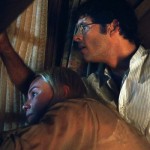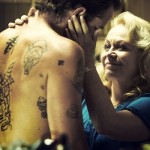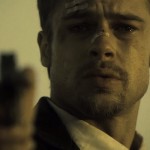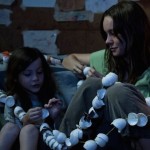Harry Potter and the Sorcerer’s Stone Review
In 2001, the Harry Potter phenomenon finally hit the big screen. The first book in the series, Harry Potter and the Sorcerer’s Stone, perfectly captures the sense of childlike wonder any of us would feel if we went to a school of magic. The film adaptation, directed by Chris Columbus, does the same thing. Unfortunately, that also holds it back. The film is such a slavish adaptation of J.K. Rowling’s book that it neglects some of the truly dark undertones of the novel (undertones that are thankfully explored later in the series). Columbus’ almost mindless interpretation also makes the film feel disconnected—with obvious and awkward breaks between “chapters.†But for a hardcore Potter fan like me, this interpretation is OK, especially for the first book in the series. It’s not ideal (later films prove that you don’t need to stick so closely to the books), but it’s definitely watchable and enjoyable.
On the eve of his 11th birthday, young Harry Potter (Daniel Radcliffe) doesn’t have much going for him. He lives in a cupboard under the stairs at his aunt and uncle’s house, and they, along with their son, make life a living hell for Harry. It doesn’t help that strange, unexplainable things always seem to happen when Harry is around, like when accidently unleashes a talking snake on his cousin when they go to the zoo. But everything’s about to change for Harry. After a number of mysterious letters arrive, addressed to Harry, a giant man named Hagrid (Robbie Coltrane) shows up informing him that he is a wizard and has been invited to train at Hogwarts School of Witchcraft and Wizardry.
Harry is whisked off into a world completely unlike the one he left behind. He meets his magical professors and makes new friends in the form of Ron (Rupert Grint) and Hermione (Emma Watson). He has mountains of wizard money, which he spends on robes, wands, and all sorts of magical goodies. He’s a star athlete in Quidditch, a high-flying wizarding sport, played on broomsticks. And perhaps most importantly, he learns about his past—his parents were killed by Lord Voldemort, the most evil wizard in history, but Harry survived. Everything appears great on the surface, but dark forces are circling, and Harry and his friends might be the only ones who can stop them.
In hindsight, the plot of the first film/book in this series seems inconsequential. Rather, this one is all about introductions. We need to get to know the characters and how they relate to one another before the story proper can get into motion, and by that time, we don’t really care, especially when the story devolves into something as simple as a glorified treasure hunt. Later films deal with more adult themes and more complex storylines. This one doesn’t, but it doesn’t really need to in order to succeed.
The characters and settings are what make this film magical and memorable. Other than the three principals, we meet Dumbledore (Richard Harris), Hogwarts’ wise, old headmaster; Professor McGonagall (Maggie Smith), Harry’s stern protector; Professor Snape (Alan Rickman), a former rival of Harry’s father who still holds a grudge; and Professor Quirrell (Ian Hart), a cowardly man charged with protecting students from the dark arts. In addition to these memorable characters, we get to see the enchanted castle, Forbidden Forest, and Quidditch stadium for the first time. It’s all wonderful if you’ve read the Potter books. If not, well you might not be interested in this movie…at least until you do read them.
The film is a little clunky in the way it’s put together. Chris Columbus would not have been my first choice for director, and he unsurprisingly fails to craft a seamless narrative. The film is choppy and could definitely have used some more trimming. Seeing as much of the film is introduction, there’s no reason for a two-and-a-half-hour running time.
Technically, however, the film is on solid ground. The visual effects are astounding. It probably took a lot of work (and money) to make Hogwarts a reality, but it was time and money well-spent. While it might not look exactly like each reader pictured it, it’s definitely an acceptable interpretation of this world. From the moving staircases to the transfiguration classes, all the magic is presented magnificently. I also thought the score by John Williams was tremendous. The main theme is equal parts spooky and playful—and it’s damn hard to get out of your head!
The main trio is comprised completely of unknowns (at least they were at the time). None is great at this young stage in their lives, however. They read dialogue rather than act it out. But of course, they are children still, so I won’t be too hard on them. The best of the bunch is probably Grint, but mostly because he has the least demanding part. Radcliffe and Watson struggle a little bit with the more emotional scenes.
The supporting cast is always where it’s at in the Harry Potter films, and the first one is no exception. Alan Rickman is just brilliant as Snape. His relationship with Harry is crucial to the rest of the series, and here, he sets it up just right, mixing a sense of genuine hatred with a need to protect and watch out for. Sir Richard Harris is spot on as Dumbledore, who’s daffy yet brilliant. And Dame Maggie Smith is given some of the film’s best lines. This film is the one in which her character is featured most, and Smith makes the most of her time to shine.
Time hasn’t looked upon this film too kindly, but I think that’s a bit unfair. Sure, it’s one of the weakest films in the series, but it’s also one of the weakest books in the series. Visually, it’s spot on, but the story just isn’t quite there. Plus, there are numerous problems with the adaptation and the direction. I can’t say that it’s a bad film, however, if I still enjoy watching it, even after all these years.
















